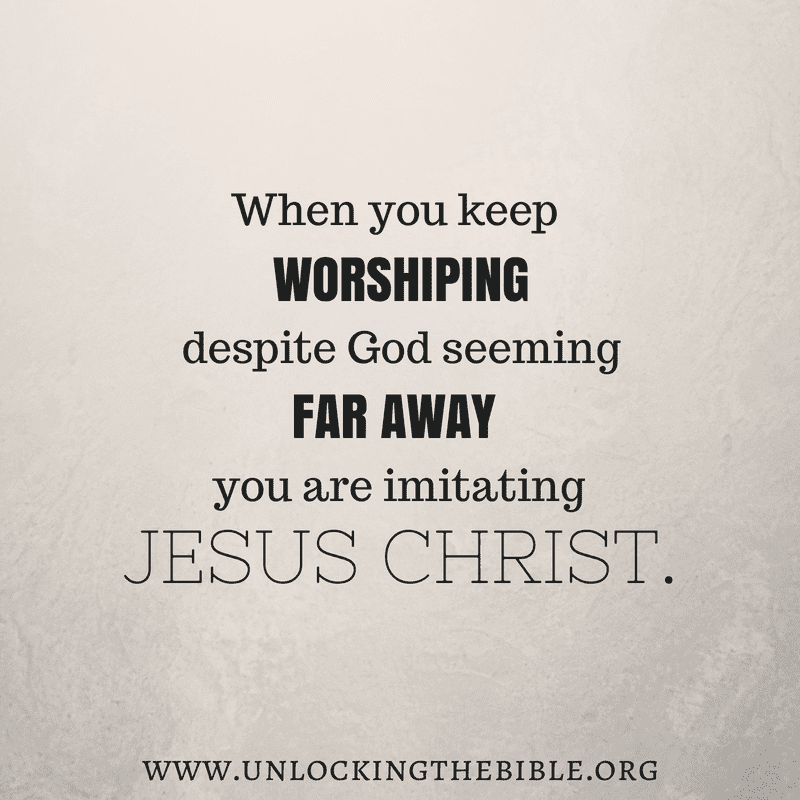How does a book get in the Bible without it ever mentioning God?
Such is the book of Esther, and it is the reason why this account is so incredibly helpful for us today. God’s rescue of his people unfolds in a book in which God is never mentioned. Not once! As the great Bible scholar Matthew Henry says of this book, “But, though the name of God be not in it, the finger of God is, directing many minute events for the bringing about of his people’s deliverance.”
So let’s start digging into God’s Holy Word revealed in Esther to uncover four very significant events – all of which revolve around God seeming very far from his people and yet very much at work.
See the Grace of God at Work (Esther 1:1-9)
Chapter one opens with the abundance of lavish festivals and feasts of King Ahasuerus of Persia. More than a century before, the Jewish people had been captured and taken into captivity by the Babylonians. God’s promise said that, after 70 years, their exile would end. By God’s grace, the Persians became their rescuers, giving the Jews the freedom to travel back to Jerusalem and rebuild their temple.
But, as we see in the opening of Esther, the Jews had lingered in Persia for fifty years. They were there either because they came from families too weak to make the long journey back, or because they came from families that didn’t care about God and His promises. Yet, we open the book of Esther to discover God rescuing these very people.
What marvelous grace! Friend, you may feel weak in faith. You may have wasted years in sin and in apathy toward God. Yet, see here in Esther that God rescues people exactly like that. See His grace at work.
See the Destruction of Sin at Work (Esther 1:10-22)
As scene two now begins in verse 10, we find King Ahasuerus, presumably quite drunk from seven days of feasting and flowing wine, wanting his wife to leave her feast and come to the party. But Queen Vashti, presumably drunk from her own feast, refuses to come.
Well, the king launches into a fit of drunken rage and begins consulting with his cabinet on what should be done (v. 13). In great inebriated foolishness, the king and his cabinet become worried that Vashti’s refusal will lead every woman in Persia to disrespect her husband (vv. 13-18). So they come to the conclusion that Queen Vashti must never be allowed to enter the king’s presence again – a de facto divorce.
A king acting in inebriated foolishness. A queen acting in intoxicated stubbornness. A marriage ends.
Friend, not only is sin an act of rebellion in our relationship with Almighty God, sin destroys our relationships with people. Ahasuerus and Vashti were presumably happy at the beginning of the feast. But that happiness ended when sin reared its head in both of their lives. They both needed repentance. They both needed forgiveness. If you’re in a relationship that’s breaking, don’t just look at the other person’s sin – look at your own sin. Sin destroys once-happy relationships.
See God’s Sovereignty at Work (Esther 2:1-18)
Despite this foolish divorce, God was at work in it to bring about His sovereign plan for His people.
A depressed King Ahasuerus responds to his wife’s absence by ordaining a massive beauty-pageant-search-party for a new queen. (Can we pause for just a second to chuckle at the idea of having a search party for a wife?) In chapter two, we finally meet Esther and Mordecai, her older cousin who adopted her as a young girl.
When the king’s search party begins, Esther is noticed right away (2:8) and is chosen to spend “one night with the king,” a disturbing test of her suitability for marriage. Mordecai is naturally quite concerned, because we find him keeping watch on Esther (v. 11). But when her night with the king arrives, we read that “the king loved Esther more than all the women, and she won grace and favor in his sight more than all the virgins, so that he set the royal crown on her head and made her queen instead of Vashti.”
Friend, the name of God is not in the book of Esther, but please see that only God can do what just happened. Let’s think about this: Foolish sin leads to a foolish divorce. The only real criterion for the king’s new wife is beauty. However, out of all the women in an empire stretching from Greece to India, it is an orphan girl from an oppressed minority who the king finds to be most beautiful. It is she who survives the horror of a concubine-night with a power-hungry king and then becomes queen.
This is God’s sovereignty at work! Friend, be encouraged. If God can do all this, if He can make Esther the queen, He is certainly strong enough to deal with your “baggage,” your weakness, and your sin. He is sovereign.
See God’s Word at Work (Esther 2:19-23)
Look at what happens next. Mordecai is sitting at the king’s gate where official business of the king happened. Presumably, his adopted-daughter-now-queen-Esther had gotten him this job.
While sitting there he hears of a plot to kill the king by the two men who guarded the threshold, which was the private access door into the king’s quarters. Put yourself in Mordecai’s shoes in this moment: if Ahasuerus dies, it’s quite likely that there are massive benefits for Mordecai and Esther – even for all the Jews.
But Mordecai remembers God’s Word, spoken through the prophet Jeremiah about how the Jews were supposed to live in their exile: “Thus says the LORD of hosts, the God of Israel, to all the exiles…seek the welfare of the city where I have sent you into exile, and pray to the LORD on its behalf, for in its welfare you will find your welfare” (Jeremiah 29:4-7).
Mordecai had a choice in this moment. He could obey God’s Word and trust God’s promise about his welfare. Or he could make a power grab for his own welfare by letting the rotten king get what he probably deserved.
But Mordecai chooses God. He tells Esther of the plot (v. 22) who, in turn, tells the king. Mordecai ultimately honors God and worships him through his reverent obedience.
See God at Work Even When He Seems Far Away
Consider these scenes and how far away God must have seemed. But Mordecai never stopped worshiping. He offered his whole life to God and served him alone. God is using the book of Esther to teach us what true worship looks like. Worship means:
- Remembering the Word of God, even at personal cost
- Persevering in obedience, even when it’s not comfortable or convenient
- Serving others, even when it might seem better to ignore them
- Refusing to bow to false gods even when everyone else does
- Living for God even when we’re not sure if we will “get” something from Him in return
- Considering Jesus Christ, who kept worshiping even as He felt forsaken on the cross
Remember when Jesus was on the cross offering the once-for-all-sacrifice for sins and fulfilling all the worship of the temple in one singular moment? What did He cry out? ‘My God, my God, why have you forsaken me?’ When you keep worshiping despite God seeming far away, you are imitating Jesus Christ.
The story of Esther seems a bit unfinished. But that’s life, isn’t it? We’d like it if the details of our lives were always wrapped up neatly in a bow. However, God is asking us if we’ll worship Him when life isn’t tied up nicely and when He seems far away. Because friend, that’s true worship. That’s true faith.



